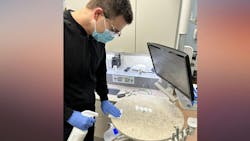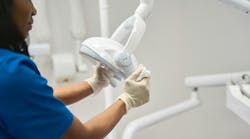Infection control coordinator: The importance of what they do and why you need one
Each day in the dental office, we focus on production and collection and getting those patients in the door. We struggle with accounts receivable and keeping insurance claims down to only 30 days, and when this doesn’t happen, we work hard to get them closed. The front office duties keep our practices in motion, and there are a lot of duties to everyone busy.
Although people have their opinions about what the most important job in the dental office is, there’s one job that’s often overlooked, and it’s the most important thing we should be doing each and every day.
What is it? Infection control coordinator!
It’s the responsibility of the infection control coordinator (ICC) to evaluate infection control protocols and safety measures to ensure patients are kept safe. Understand that if the front office staff is in sync, but the back-office staff is falling apart, things will not run smoothly, no matter what you try to do. If your patients are not safe, the entire practice is at risk.
You might think infection control is the responsibility of the office Occupational Safety and Health Administration (OSHA) coordinator. But I highly recommend you appoint another person for the ICC task. Each of these job titles requires responsibilities beyond the chair, and our days are already extremely busy. Piling even more responsibility on one person is asking too much of them. They may become overwhelmed and as a result, accomplish nothing. By having two people handle these two jobs, they can work together to ensure all the important bases are covered.
Infection control has greatly evolved through the years. In 2016, when the Centers for Disease Control and Prevention (CDC) published its “Summary of Infection Prevention Practices in Dental Settings, Basic Expectations and Safe Care,” they recommended that every dental practice appoint an ICC. They said that at least one person should oversee the infection control protocols, be responsible for keeping those protocols up to date, and keep team members informed.
One of the most forgotten and underestimated tasks in dental offices is spore testing the autoclaves. When I consult with offices, I often notice they aren’t doing spore testing at all, saying they didn’t know they needed to; they’re testing the autoclaves but not the statims; or they’re not testing the loaner autoclave they got when theirs went down. Each sterilizer needs to be tested once a week, and in addition, every single load needs to be monitored.
You might also want to read: Are you making these common infection control mistakes?
The responsibilities of the ICC
The ICC needs to establish written infection control protocols for the practice and make sure the entire team is on board. Having these protocols in place establishes boundaries for the team and lets them know the proper steps to take. This is just as important as an employee manual. When you create team guidelines, everyone knows exactly what’s expected of them. Their duties include:
- Hand hygiene protocols
- Protocols for processing dental instruments
- Sterilization procedures and monitoring of sterilizers
- Care and storage of dental instruments.
- Surface disinfectants
- Proper PPE
- Use of barriers
- Biohazard waste
- Resources for the team
- Annual team training
- Annual review of the polices and making changes when necessary
When developing these policies, they must be specific to your practice. Generic, one-size-fits-all protocols can be confusing to the team. Know your state recommendations and follow all CDC recommendations and guidelines.
If you need training for your ICC, there are two excellent resources available: the Organization for Safety, Asepsis and Prevention (OSAP), and the DANB/Dale Foundation. Both of these organization have extensive training modules for infection prevention, and they offer certification and recourses for the ICC.
A well-trained team member in the area of infection control is a very valuable team member. They need your investment of training and support so they can thrive in their job and help your practice succeed. Do not overlook the important and often overlooked position of ICC in your practice.
Tija Hunter, CDA, CDIA, CDIPC, CDSH, CDSO, EFDA, MADAA, is a member and former vice president of the American Dental Assistants Association (ADAA), where she holds the honor of Master. She is the director of the Dental Careers Institute, a dental assisting and dental continuing education program, and the author of seven continuing education study courses. She is an international speaker and a certified trainer in nitrous oxide in several states. She can be reached at [email protected].
About the Author

Tija Hunter, CDA, EFDA
Tija Hunter, CDA, CDIA, CDIPC, CDSH, CDSO, EFDA, MADAA, is a member and former vice president of the American Dental Assistants Association (ADAA), where she holds the honor of Master. She is the director of the Dental Careers Institute, a dental assisting and dental continuing education program, and the author of seven continuing education study courses. She is an international speaker and a certified trainer in nitrous oxide in several states. She can be reached at [email protected].


